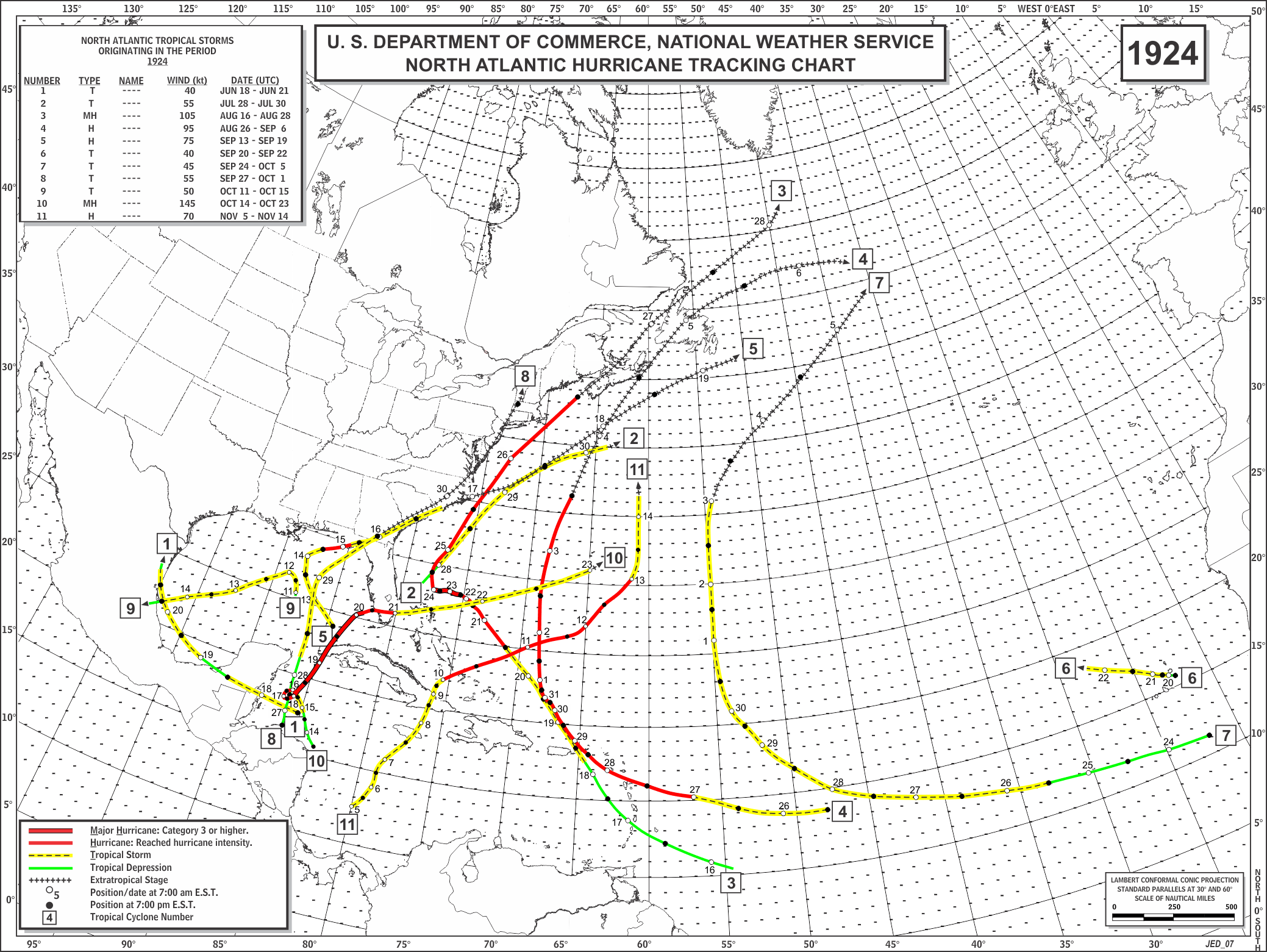By Paul Homewood
The 2024 Atlantic hurricane season is coming to an end and it has been an active one overall.
There have been 18 named tropical storms, with 11 of those reaching hurricane strength and five becoming major hurricanes – category three and above.
An average season would bring 14 storms, seven hurricanes and three major hurricanes.
Some records have been equalled or broken but the active weather was not spread evenly across the season. In fact the middle of the season, normally the peak, was very quiet.
https://www.bbc.co.uk/weather/articles/cp87g4p73kxo
.
Despite claims of “records broken”, the BBC makes no mention of what these might be!
Unsurprising, because no records were broken, unless you count Beryl which was claimed to be the earliest Cat 5 on record, which has no significance whatsoever.
Instead, although above average, the number of hurricanes and major ones were not exceptional at all.
https://www.nhc.noaa.gov/data/tcr/index.php?season=2024&basin=atl
Atlantic hurricanes, of course, have only been comprehensively monitored for the last thirty years or so, thanks to full satellite coverage and hurricane hunter aircraft robust enough to fly into the centre of the most powerful storms. Therefore it is impossible to draw meaningful conclusions about the longer term trends. Nevertheless the lull during the 1970s and 80s, which was due to the cold phase of the AMO, is evident, as is the busy period prior when the AMO was warm.
We can see the big difference that modern technology has made to hurricane monitoring, by comparing the maps for this year and a hundred years ago:

Only five hurricanes were officially recorded in 1924, all close to land. Although we had eleven hurricanes this year, five were way out in the mid-Atlantic, where they would have been unlikely to be spotted, or at least properly measured – Ernesto, Isaac, Kirk, Joyce and Leslie.
The best data we have is for US landfalling hurricanes, which were much more comprehensively monitored and recorded. Here there were five hurricanes, two of which were major ones at landfall. Neither number was exceptional.
https://www.aoml.noaa.gov/hrd/hurdat/All_U.S._Hurricanes.html
Finally let us go back to what NOAA concluded in their latest review of hurricanes earlier this year:
https://www.gfdl.noaa.gov/global-warming-and-hurricanes/
—————————-
No increase in frequency
No increase in intensity
—————————–
But the BBC prefer to ignore facts, and continue to propagate their lies:







